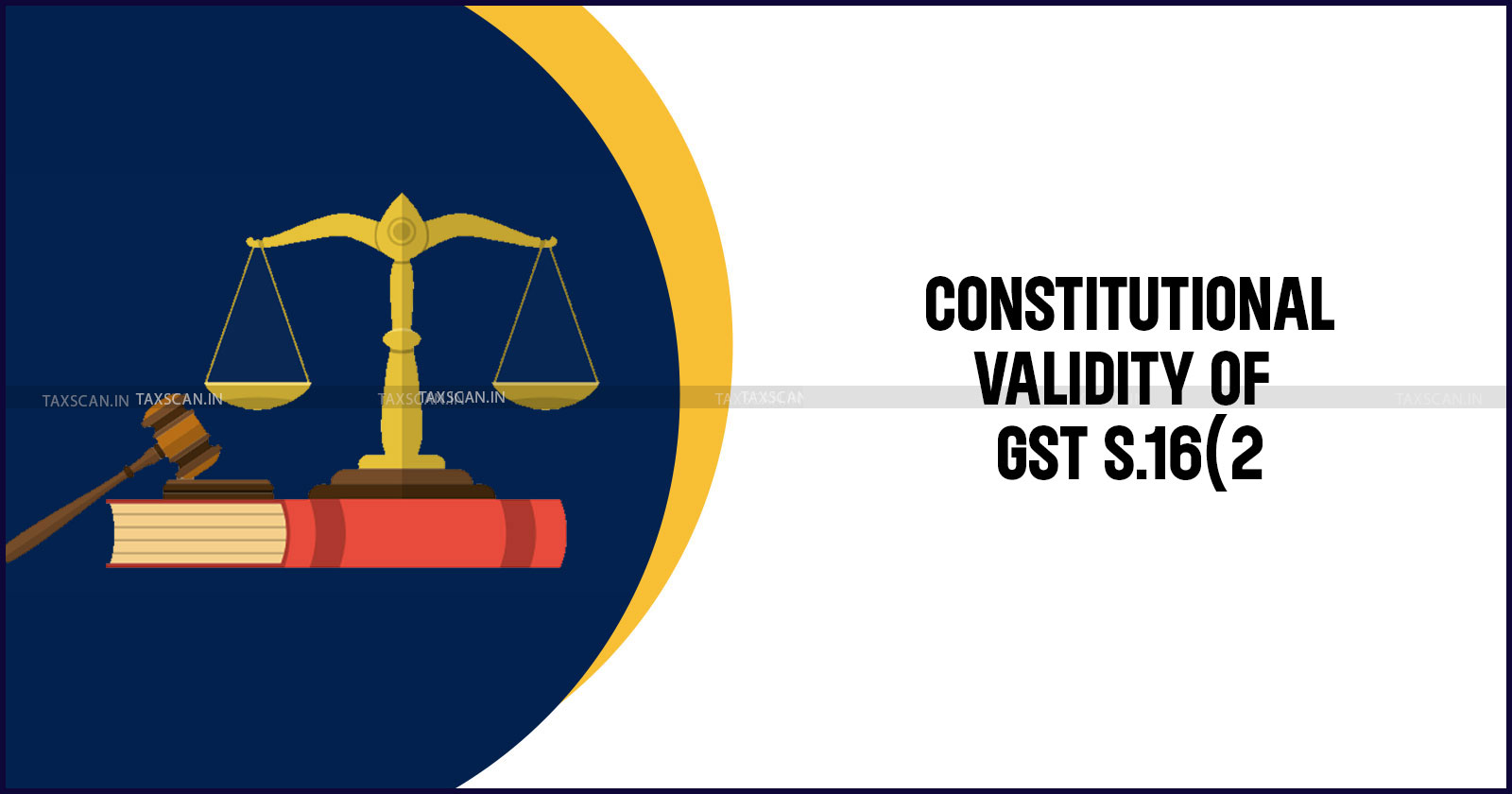Delhi GST Department Mandates Virtual Personal Hearings for Proceedings under DGST Act, Issues Guidelines [Read Circular]
As per the new guidelines, personal hearings will be conducted using video conferencing platforms such as Webex and Google Meet.
![Delhi GST Department Mandates Virtual Personal Hearings for Proceedings under DGST Act, Issues Guidelines [Read Circular] Delhi GST Department Mandates Virtual Personal Hearings for Proceedings under DGST Act, Issues Guidelines [Read Circular]](https://images.taxscan.in/h-upload/2025/06/14/2044352-virtual-personal-hearings-delhi-gst-department-dgst-act-taxscan.webp)
The Delhi GST Department has issued guidelines mandating that all personal hearings under the Delhi Goods and Services Tax ( DGST) Act, 2017, shall now be conducted exclusively through virtual mode.
With particular attention paid to Sections 75(4), 126(3), and 107(8), which highlight the taxpayer's right to a personal hearing before any adverse action being taken, this directive is based on the DGST Act's statutory structure. Maintaining the ideals of natural justice requires these protections.
As per the new guidelines, personal hearings will be conducted using video conferencing platforms such as Webex and Google Meet. Taxpayers will be notified in advance of the hearing schedule via their registered email IDs or mobile numbers, along with meeting links and contact details of support staff for assistance.
Complete GST Act & Rules with amendments made by financial bill, 2025 - CLICK HERE
Participants are required to ensure technical readiness and professional conduct during the hearings. Submissions made during the hearing will be documented in a "Record of Personal Hearing," which will be signed by the authority and shared electronically with the taxpayer.
The guidelines further mandate prior submission of authorization documents, identity proof, and contact information for representatives. Any documents referred to during the hearing must be submitted in scanned, self-attested form via official communication. Where necessary, physical documents may also be submitted post-hearing.
While virtual hearings are now the default, the guidelines allow for rare exceptions in cases of technical or personal constraints. Such requests must be approved by the relevant Zonal Officer after recording justifiable reasons. Officers representing the department may also join the hearings remotely.
The words in the guidelines is as follows:
“a. In any proceeding, all the personal hearings shall mandatorily be conducted in virtual mode and no person shall be required to appear in person for personal hearing.
b. Such virtual hearings shall be conducted through available applications such as WEBEX, Google-Meet etc. The date and time of hearing along with a link for the virtual hearing shall be informed well in advance to the taxpayer or authorized representative through the registered email id and/or mobile number.
c. In the said e-mail, Authority shall also provide details of the staff/officer who would provide assistance to the party, for conducting the virtual hearing. This link shall not be shared with any other person without the consent of the said officer.
d. The taxpayer or his authorized representative shall download the required application on their computer system/laptop/mobile phone beforehand and be ready with appropriate network connectivity and bandwidth for the virtual hearing and join the same at the time and date allocated to them.
Complete Referencer of GSTR-1, GSTR-1A, GSTR-3B, GSTR-9 & GSTR-9C - CLICK HERE
e. The taxpayer or authorized representative shall be required to submit his vakalatnama or authorization letter along with the copy of his photo-id card and provide contact details well in advance to the said officer, devoid of which he shall not be allowed to represent the taxpayer.
f. The virtual hearings shall be conducted from office of the concerned Authority only.
g. All persons participating in the virtual hearing shall be appropriately dressed and shall maintain the decorum and dignity at all times.
h. The submissions made by the taxpayer or his authorized representative during the virtual hearing shall be recorded as “Record of Personal Hearing” by the concerned Authority on online PM module and after generating it in pdf format, Authority shall put his signature and share thereon. A copy of such saved “Record of Personal Hearing” shall be shared on the registered e-mail id of the taxpayer. Additionally, it shall also be sent on the e-mail id provided by the taxpayer or his authorized representative in Para e hereabove.
i. In case of any adjournment, a notice of adjournment shall also be sent through BO Portal mentioning details of next date of hearing.
j. If the taxpayer/authorized representative prefer the Authority to consider any document including additional documents during the virtual hearing, he may do so by sending the scanned copy of such self-attested document via official mail to the Authority concerned before virtual hearing.
k. In cases of requirement of submission of physical set of documents the same shall be submitted after due attestation by the taxpayers or his authorized representative, to the Authority concerned during working hours.”
Step by Step Handbook for Filing GST Appeals - Click Here
 Also Read:Plea Against Constitutional Validity of GST S.16(2) Rejected: Karnataka HC Directs to Pursue Statutory Appeal Against Demand Order [Read Order]
Also Read:Plea Against Constitutional Validity of GST S.16(2) Rejected: Karnataka HC Directs to Pursue Statutory Appeal Against Demand Order [Read Order]
Support our journalism by subscribing to Taxscan premium. Follow us on Telegram for quick updates


